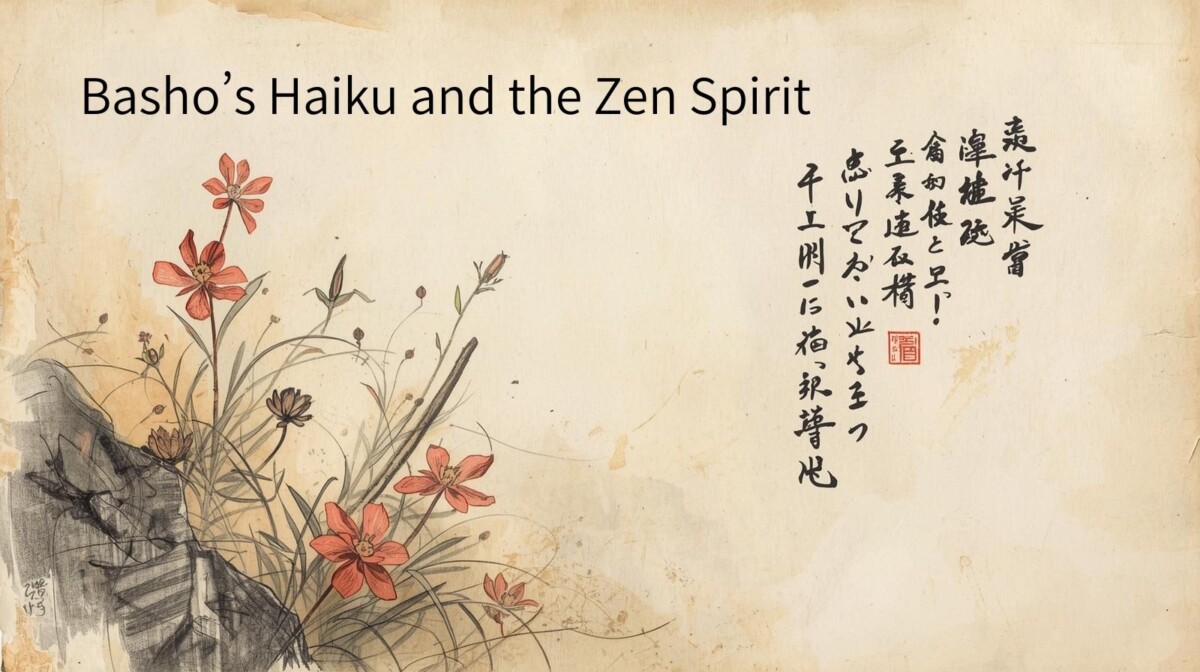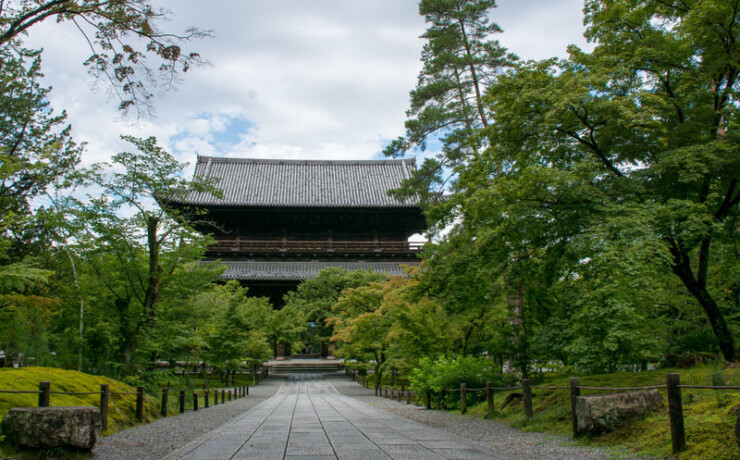
Basho’s Haiku and the Zen Spirit
When we think of Zen wisdom, we often imagine silent meditation halls and ancient temples. Yet Zen has also expressed itself through art and poetry. Among the most famous examples are Basho’s haiku, where the Zen spirit of simplicity, awareness, and impermanence comes alive in just a few syllables.
Basho’s Haiku: Simplicity and Depth
Matsuo Basho, the 17th-century Japanese poet, is often considered the master of haiku. His short verses are more than literary art—they are Zen teachings in poetic form. Each haiku captures a fleeting moment, encouraging us to see the profound within the ordinary.
Perhaps his most famous haiku is:
An old silent pond—
A frog jumps into the pond,
Splash! Silence again.
This poem is not just about a frog; it is a meditation on presence, sound, and stillness. It embodies the Zen view that enlightenment is found in the smallest details of everyday life.
Haiku as a Zen Practice
Writing or reading haiku can itself become a form of Zen practice. The focus is on simplicity, brevity, and awareness of the present moment. In today’s world, where attention is fragmented, haiku trains us to slow down and notice. This resonates with modern practices like mindfulness poetry and forest bathing, which also encourage direct experience with nature.
The Spirit of Wabi-Sabi
Basho’s haiku reflect wabi-sabi aesthetics, celebrating impermanence, imperfection, and natural beauty. This Zen spirit invites us to find harmony in weathered stones, falling leaves, or the silence after a splash. In a time when digital perfection dominates social media, wabi-sabi offers a refreshing reminder of authenticity and depth.
Why Basho Still Matters
Surprisingly, Basho’s insights are finding new relevance in today’s culture. The rise of slow travel and minimalist lifestyles shows a collective desire to reconnect with presence and simplicity. Just as Zen teaches us to sit quietly in zazen, Basho’s haiku invites us to dwell fully in each passing moment.
A Simple Invitation
You don’t need to be a poet to experience the Zen spirit in haiku. Try reading one aloud before meditation, or write your own three-line verse during a walk. Notice how words become gateways to silence, and how silence reveals the beauty of the present.
🌿 For more reflections on Zen teachings and how they inspire modern living, visit ZEN for LIFE and discover timeless wisdom for everyday life.





この記事へのコメントはありません。